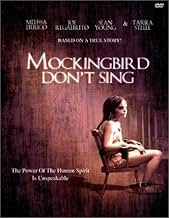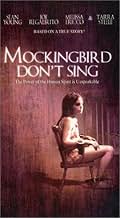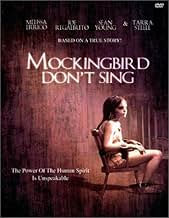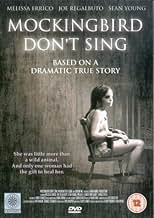AVALIAÇÃO DA IMDb
6,3/10
2,5 mil
SUA AVALIAÇÃO
Adicionar um enredo no seu idiomaBased on the actual events of one of the most horrific cases of child abuse ever to be documented, this haunting drama tells the tale of a young girl who was locked in a room for over 12 yea... Ler tudoBased on the actual events of one of the most horrific cases of child abuse ever to be documented, this haunting drama tells the tale of a young girl who was locked in a room for over 12 years.Based on the actual events of one of the most horrific cases of child abuse ever to be documented, this haunting drama tells the tale of a young girl who was locked in a room for over 12 years.
- Direção
- Roteirista
- Artistas
- Prêmios
- 1 vitória no total
Avaliações em destaque
It's hard to believe an atrocity such as this occurred in the United States. The lack of punishment for the parents illustrates yet another breakdown of the system. My emotions swung between sadness and anger. This is something everyone should watch.
The movie was set in the 70s and it accurately depicted the life and times through the clothes, hairdo, household products and music. The central character is the 13 year old victim of child abuse, Katie Standen and the women who sought to bring out of her abused state, namely her mother Mrs. Standen, child therapist Judy Bingham and psychology graduate student Sandra. The story is told from the point of view of Sandra. One can't help but feel a sense of melodrama and a tinge of sadness when seeing how all 3 desperately try to save Katie whilst fighting each other for her custody and trust. Katie, played by Tara Steele is excellent in her role as a victim who spits, vomits and then eats again her food and also, "touches" herself. The ending leaves you somewhat sad and melancholic and will stay in your head for days.
I loved this movie so much that I have been trying to buy it since I saw it. I am in the middle of the book now. I could watch this movie 1000 times and not get bored. Good directing and casting!! I think anyone who sees it will come away with a feeling that will stay for days, maybe weeks!!
I missed this film, when it was displayed at University by my' Psychology department, but as soon as I stumbled over it in our local Video Store, I rented it and quite honestly, I don't know what to tell you. I really believe, that I can't say this was a good film, because the story is just too sad and too real. What I can say though, is that this is an utmost interesting film, which displays what humans are capable of in a very professional way. I must say this, for I felt this was not so much a dramatized version of a true life event, but rather a documentary on a true life event. This is neither a tear jerker, nor a graphically violent film but maybe that it is also the reason it is twice as memorable as your average psychological drama. This film will leave you sitting shocked and numb in front of your TV.
8 out of 10 (for people who are really interested in the human psyche like psychology students)
7 out of 10 (for the average viewer)
8 out of 10 (for people who are really interested in the human psyche like psychology students)
7 out of 10 (for the average viewer)
8/9/03
Dear Sylvia Marciniak
Thank you for looking at our film "Mockingbird Don't Sing". I am the producer director.
I am intrigued by your comment that it was not accurate. In what respect, pray tell? We spent two years researching this subject and enlisted the service of Dr Susan Curtiss (named Sandra Tannen in the film) who was, as you will know from your research, present at all but the early stages of Genie/Katie's life starting a few months after she arrived at Children's hospital. We interviewed her for about 40 hours total and she was our primary source.
Susie Curtiss, now a linguistics professor at UCLA, signed off on this script as being as accurate a representation as was possible, given the constraints of having to make a drama out of the story. That is to say, we felt that all the lawsuits which followed the child's return to her mother belonged in another story.
I used many other sources, including "sealed" records from the Los Angeles courthouses, Dr Rigler, Dr Jay Shurley, John Miner, the child's onelime legal guardian, Dr Kay Natali and a host of others who were actually personally acquainted with the child and her situation for many years in the 1960s 70's and 80's.
I suspect that you have read Russ Rymer's book and New Yorker articles -- documents much derided by the actual participants in the true story because of their massive inaccuracies and because his primary contact was the child's mother, Irene (now deceased by the way). Have you read Dr Susan Curtiss' own book on the subject, I wonder: `Genie - A Psycholinguistic Study of a Modern-Day `Wild Child'
So you see, I simply can't let you get away with the broad statement at the top of your comments "It's not accurate". You may have studied this case in class, but I spent three solid years on this killing myself to do justice to the story and to make it as accurately and elegantly as possible, and -- my God -- to actually manage to get a film made about such a risky and difficult subject.
I am saddened that you chose only to respond to the verisimilitude of the film. The names were changed for silly legal reasons beyond my control, but I might have hoped for a more reflective set of comments from a psychology student.
Now I'm sorry that I've yelled my head off at you -- you're probably a perfectly decent person. You should understand that this is an important movie for me and I don't respond well to uninformed criticism. You are free to dislike the picture, of course, but don't tell me "It's not accurate".
I do hope you will find time to reply and to forgive me for being such a curmudgeon.
Sincerely,
Harry Bromley-Davenport. (Producer/Director "Mockingbird Don't Sing")
Dear Sylvia Marciniak
Thank you for looking at our film "Mockingbird Don't Sing". I am the producer director.
I am intrigued by your comment that it was not accurate. In what respect, pray tell? We spent two years researching this subject and enlisted the service of Dr Susan Curtiss (named Sandra Tannen in the film) who was, as you will know from your research, present at all but the early stages of Genie/Katie's life starting a few months after she arrived at Children's hospital. We interviewed her for about 40 hours total and she was our primary source.
Susie Curtiss, now a linguistics professor at UCLA, signed off on this script as being as accurate a representation as was possible, given the constraints of having to make a drama out of the story. That is to say, we felt that all the lawsuits which followed the child's return to her mother belonged in another story.
I used many other sources, including "sealed" records from the Los Angeles courthouses, Dr Rigler, Dr Jay Shurley, John Miner, the child's onelime legal guardian, Dr Kay Natali and a host of others who were actually personally acquainted with the child and her situation for many years in the 1960s 70's and 80's.
I suspect that you have read Russ Rymer's book and New Yorker articles -- documents much derided by the actual participants in the true story because of their massive inaccuracies and because his primary contact was the child's mother, Irene (now deceased by the way). Have you read Dr Susan Curtiss' own book on the subject, I wonder: `Genie - A Psycholinguistic Study of a Modern-Day `Wild Child'
So you see, I simply can't let you get away with the broad statement at the top of your comments "It's not accurate". You may have studied this case in class, but I spent three solid years on this killing myself to do justice to the story and to make it as accurately and elegantly as possible, and -- my God -- to actually manage to get a film made about such a risky and difficult subject.
I am saddened that you chose only to respond to the verisimilitude of the film. The names were changed for silly legal reasons beyond my control, but I might have hoped for a more reflective set of comments from a psychology student.
Now I'm sorry that I've yelled my head off at you -- you're probably a perfectly decent person. You should understand that this is an important movie for me and I don't respond well to uninformed criticism. You are free to dislike the picture, of course, but don't tell me "It's not accurate".
I do hope you will find time to reply and to forgive me for being such a curmudgeon.
Sincerely,
Harry Bromley-Davenport. (Producer/Director "Mockingbird Don't Sing")
Você sabia?
- CuriosidadesThe character of Katie is based on a girl called "Genie" by a few scientists, and the character of Sandra is based on linguist Susan Curtiss.
- Erros de gravaçãoWhen Sandra drives her Volkswagen Bug to visit Katie, who is now living with her mother Louise, the interior of her car is painted red. But after she parks and opens the door, the paint is white.
- Citações
Louise Standon: Wes never did trust doctors, and, uh... and in that regard, I've come around to his way of thinking.
Principais escolhas
Faça login para avaliar e ver a lista de recomendações personalizadas
- How long is Mockingbird Don't Sing?Fornecido pela Alexa
Detalhes
Bilheteria
- Orçamento
- US$ 3.000.000 (estimativa)
Contribua para esta página
Sugerir uma alteração ou adicionar conteúdo ausente


































